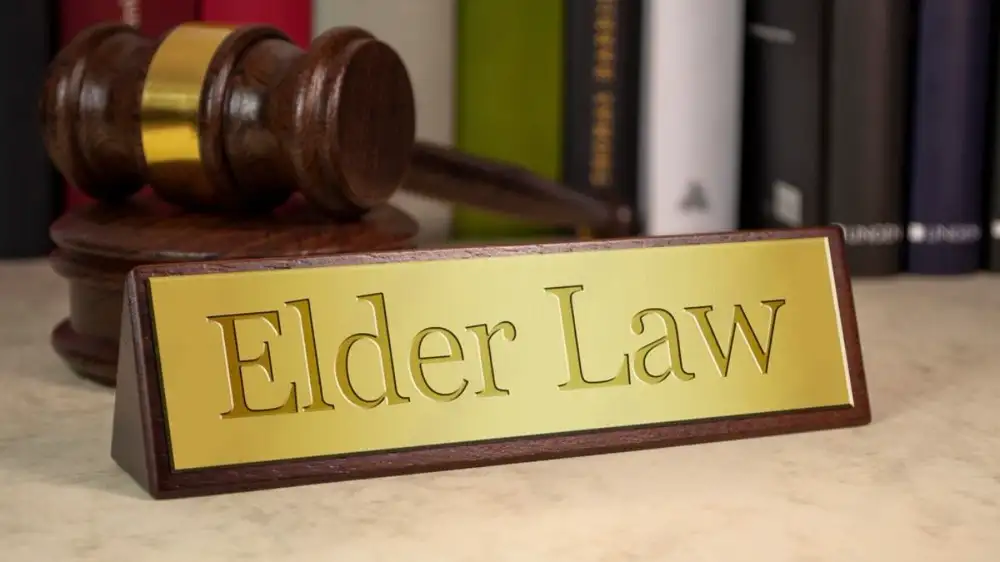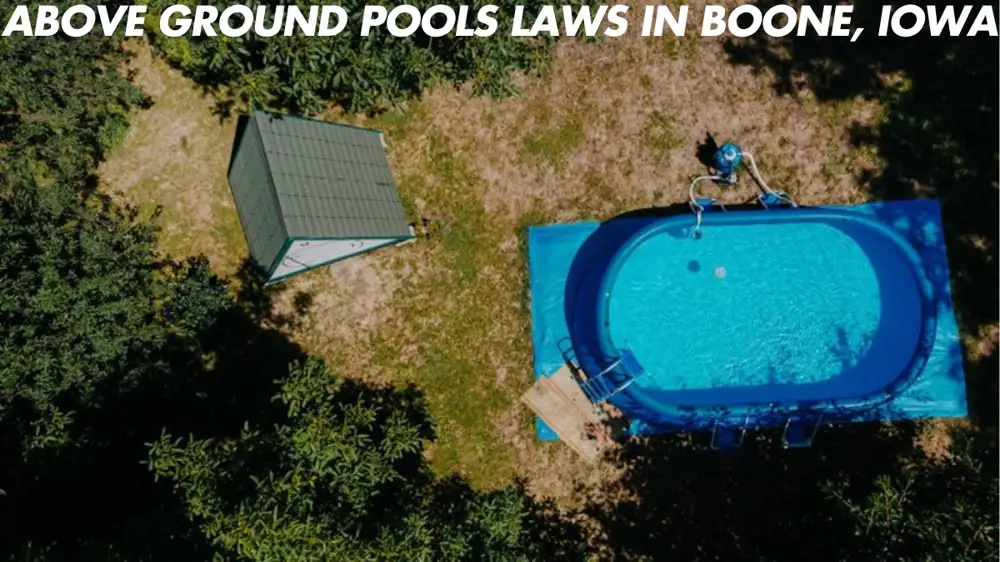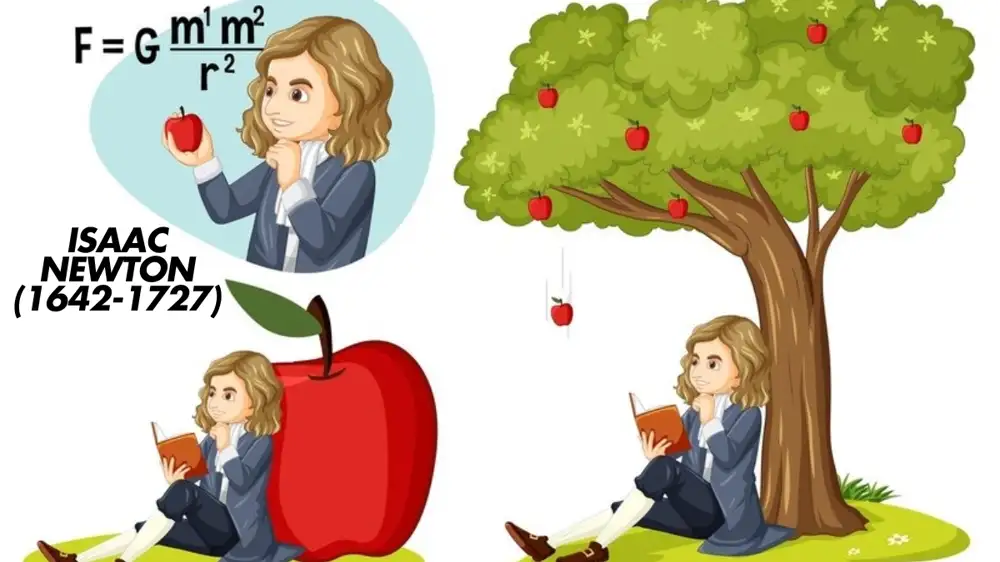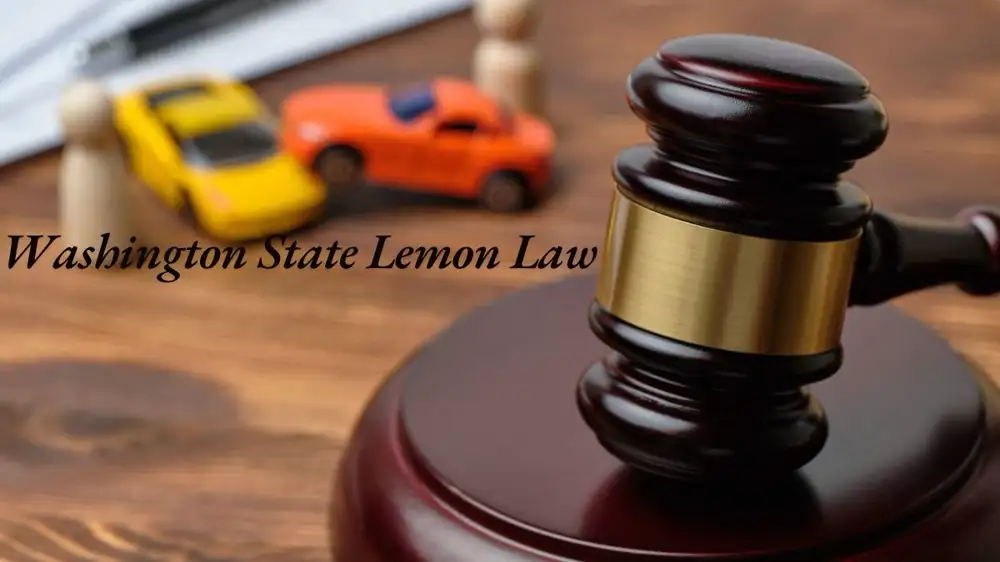Law
How Much Do Elder Law Attorneys Charge? Discover the Affordable Costs and Fees You Need to Know

Elder law lawyers focus on matters that impact senior citizens, including oversight, the Medicaid program, long-term care planning, and estate preparation. Selecting the best elder law lawyer is crucial, whether you’re looking for assistance with a loved one’s legal issues or are making plans for the future. However, “What are the fees for hiring an elder law attorney?” is one of the first queries individuals have when thinking about employing one.
The costs related to employing an elder law lawyer will be thoroughly explored in this article. We’ll go over the different price structures, variables that influence prices, and advice on how to locate a lawyer who can work with your budget. Let’s explore the subject and give you an idea of the costs associated with elder law services.
Factors Affecting the Cost of Elder Law Attorneys
It’s crucial to comprehend the various elements that can affect elder law attorneys’ fees before delving into precise pricing. The price of employing a lawyer might vary greatly based on a number of factors. Among the crucial elements are:
1. Location
The cost of hiring an elder law attorney largely depends on where you live. Attorneys in large cities or areas with a high cost of living typically charge more than those in rural or smaller towns. For example, attorneys in places like New York City or Los Angeles may have higher hourly rates than those in less populated regions.
2. Complexity of the Case
The complexity of your legal issue also plays a role in determining the cost. If you’re seeking help with simple estate planning, such as drafting a will, the fees will likely be lower than if you need assistance with complex Medicaid planning, guardianship, or a contested will. The more time and expertise required to handle your case, the higher the fees are likely to be.
3. Attorney’s Experience
Experienced elder law attorneys often charge more than those who are newer to the field. However, an experienced lawyer may be able to handle your case more efficiently, potentially saving you money in the long run. In contrast, a less experienced attorney might charge a lower rate, but their lack of experience could lead to longer case resolution times.
4. Type of Services
The cost will also depend on the specific services you require. Some elder law attorneys provide a range of services, while others may specialize in one particular area. For example, if you’re looking for help with long-term care planning, the attorney may charge differently than if you’re drafting a trust or dealing with Medicaid issues.
Common Pricing Structures for Elder Law Attorneys
Elder law attorneys typically use one of several pricing structures. Understanding these can help you figure out how much you can expect to pay for their services.
1. Hourly Rate
Most elder law attorneys charge by the hour. Hourly rates for attorneys can vary widely, with rates typically ranging from $150 to $500 per hour, depending on the factors discussed earlier. Attorneys in larger cities or with more experience will likely charge higher rates.
Hourly billing is common for cases that are more complex or when the amount of work involved is uncertain. For example, if you’re dealing with a Medicaid application, the attorney may need to bill you hourly for the time spent reviewing documents, filing paperwork, and providing advice.
2. Flat Fees
For simpler legal matters, some elder law attorneys charge a flat fee. Flat fees are common for tasks like drafting wills, powers of attorney, or basic estate planning documents. The cost for these services can range from $200 to $3,000 or more, depending on the complexity of the documents and the attorney’s reputation.
A flat fee gives clients a clear understanding of how much they will pay upfront, making it easier to budget for legal services. However, it’s important to clarify exactly what is included in the flat fee to avoid any surprises.
3. Retainers
In some cases, elder law attorneys may ask for a retainer, which is an upfront deposit that covers future legal services. The attorney will bill against this retainer, and once it’s used up, the client may need to replenish it. Retainer fees can vary widely, often ranging from $1,000 to $10,000 or more, depending on the attorney’s rates and the anticipated amount of work.
Retainers are typically used for ongoing services or cases that are expected to take longer to resolve. For example, if you’re hiring an attorney to handle Medicaid planning over several months, a retainer may be appropriate.
4. Contingency Fees
Contingency fees are less common in elder law cases but may apply in certain situations, such as when pursuing a lawsuit. In a contingency arrangement, the attorney does not charge hourly rates or flat fees. Rather than an hourly rate, the attorney is paid a percentage of the settlement if the case is won, usually between 25% and 40%.
Contingency fees are often used in personal injury cases or wrongful death suits, but they’re not typically found in estate planning or Medicaid matters.
5. Sliding Scale Fees
Some elder law attorneys offer sliding scale fees, which means the amount you pay depends on your financial situation. This arrangement is designed to make legal services more accessible to individuals with limited incomes. If you qualify for sliding scale fees, the attorney may charge less than their usual rates.
Typical Costs for Specific Elder Law Services
Now that we’ve covered the different pricing structures, let’s look at the typical costs for specific elder law services. These prices are estimates and can vary depending on the complexity of the case, the attorney’s location, and other factors.
1. Estate Planning (Wills, Trusts, Powers of Attorney)
Basic estate planning is often one of the most affordable services provided by elder law attorneys. The fees for creating a basic will generally vary between $300 and $1,000. If you need a more complex trust or a detailed estate plan that includes tax planning and asset protection, costs can increase significantly, reaching $2,500 to $5,000 or more.
If you require multiple documents, such as a will, power of attorney, living will, and health care directives, the attorney may offer a package deal that costs between $1,000 and $3,000.
2. Medicaid Planning
Medicaid planning can be one of the more expensive services in elder law due to its complexity. Attorneys who specialize in Medicaid planning can charge anywhere from $150 to $500 per hour for their services. For more extensive planning, the costs may total $3,000 to $7,500 or more.
If you’re applying for Medicaid for long-term care, the attorney will need to review your financial situation, help you restructure assets to qualify for Medicaid, and file the necessary paperwork. This process can take months, so the costs will vary depending on how much work is involved.
3. Guardianship and Conservatorship
If you’re seeking guardianship or conservatorship for an elderly loved one, the process can be complex and may involve court hearings. Elder law attorneys typically charge hourly rates for these cases, with costs ranging from $150 to $400 per hour. In addition to attorney fees, you may also have to pay court filing fees and other costs associated with the process.
The total cost of a guardianship or conservatorship case can range from $2,000 to $10,000, depending on the complexity and whether the case is contested.
4. Probate Administration
Probate refers to the legal procedure for managing and distributing a deceased individual’s estate. Probate lawyers are essential in this process and usually charge either a fixed fee or an hourly rate for their services. The cost can differ based on the estate’s complexity and the level of work required for its administration. Executors of the estate are often required to navigate legal requirements, such as distributing assets and paying off debts, which is where the expertise of a probate attorney becomes invaluable. Flat fees can range from $1,500 to $5,000, while hourly rates can range from $200 to $400 per hour.
The cost of probate can increase if there are disputes over the will, or if the estate is large and complex. In such cases, attorney fees can easily exceed $10,000.
How to Manage Elder Law Attorney Fees
While elder law services can be expensive, there are several ways to manage costs and find affordable legal help.
1. Get Multiple Quotes
It’s a good idea to contact several attorneys to compare fees and get a better idea of what you can expect to pay. When you meet with an attorney, ask for a breakdown of their fees, including whether they charge hourly rates or flat fees, and whether any additional costs are involved.
2. Ask About Payment Plans
If you’re concerned about the cost of hiring an attorney, ask if the lawyer offers payment plans. Some attorneys may be willing to work with you to set up a plan that fits your budget.
3. Consider Legal Aid Programs
If you have a limited income, you may qualify for free or low-cost legal assistance through various nonprofit organizations or legal aid programs. Moreover, these programs can provide valuable support, especially when financial constraints make it difficult to afford traditional legal services. Additionally, such assistance is often available to help individuals navigate legal challenges, ensuring that access to justice is not limited by one’s economic situation. Therefore, it is worth exploring these options if you find yourself in need of legal help. Some elder law attorneys may also provide pro bono services for clients in need.
4. Seek a Consultation
Many elder law attorneys offer free or low-cost consultations. Take this opportunity to discuss your case in detail, ask any questions you may have about fees, and, most importantly, determine whether the attorney is the right fit for your specific needs. In addition, this conversation provides an excellent chance to assess the attorney’s approach and experience, ensuring that they align with your expectations. By addressing all of these factors, you’ll be better equipped to make an informed decision moving forward. This can help you avoid wasting money on legal services that aren’t suitable for your situation.
5 Common Questions About Elder Law Attorney Fees Answered
1. What is the typical hourly rate for elder law attorneys?
Elder law attorneys typically charge between $150 and $500 per hour, depending on their experience, location, and the complexity of your case.
2. What does a flat fee cover in elder law services?
A flat fee generally covers specific legal services like drafting a simple will, trust, or power of attorney. The cost can range from $300 to $3,000 based on the complexity of the documents.
3. Do elder law attorneys offer free consultations?
Many elder law attorneys offer free or low-cost consultations. It’s a great opportunity to discuss your case and get an estimate of the costs involved.
4. How much does Medicaid planning cost with an attorney?
Medicaid planning typically costs between $3,000 and $7,500, depending on the complexity of your financial situation and the attorney’s hourly rate.
5. Are there any legal aid programs for elder law services?
Yes, some legal aid organizations offer free or low-cost elder law services to individuals with limited income. Check with local nonprofits or legal aid providers for assistance.
Conclusion
The cost of engaging an elder law lawyer might vary greatly based on location, difficulty, and the lawyer’s experience, but it can be an investment in your future. Elder law lawyers often bill between $150 and $500 per hour, with some services having flat rates that range from several hundred to several thousand dollars. You can choose an attorney that suits your budget by being aware of the various pricing systems and variables that influence the price. The correct lawyer can offer important direction and peace of mind, whether you’re looking for help for a loved one or making plans for your own future.
Law
Above-Ground Pool Laws in Boone, Iowa: Your Complete Guide to Compliance and Safety

Installing an above-ground pool in Boone, Iowa, is a fantastic way to enjoy the warm Midwest summers. But before you start shopping for pool floats, it’s crucial to understand local laws to avoid fines, safety hazards, or disputes with neighbors. This guide dives deep into above-ground pool laws in Boone, Iowa, providing actionable tips, local resources, and expert advice to ensure your pool setup is safe, legal, and stress-free.
Why Boone Has Laws for Above-Ground Pools
Above-ground pools may seem simple, but they come with responsibilities. Boone’s regulations are designed to:
- Prevent accidents (drowning is the leading cause of death for children under 5).
- Protect property values by ensuring pools don’t encroach on neighbors or create eyesores.
- Manage environmental impact (e.g., proper drainage to prevent flooding).
- Uphold community standards (noise, chemical use, and aesthetics).
By following these rules, you’ll not only stay compliant but also foster goodwill in your neighborhood.
Step 1: Do You Need a Permit? Boone’s Requirements
In Boone, permits are required for most above-ground pools. Here’s how to determine if yours needs one:
Pool Size Thresholds
- Depth: Pools deeper than 24 inches (2 feet) require a permit.
- Volume: If your pool holds 5,000+ gallons of water, a permit is mandatory.
Example: A typical 15-foot round pool with a 48-inch depth holds about 4,978 gallons—just under the limit. But double-check your pool’s specs!
Permanent vs. Temporary Pools
- Permanent pools (e.g., steel-walled or resin frames) always require permits.
- Temporary inflatable pools may not need permits if they’re emptied daily.
How to Apply:
- Visit Boone City Hall (923 8th Street, Boone, IA 50036) or the City of Boone website.
- Submit a Residential Pool Permit Application (including pool dimensions, location, and safety features).
- Pay a 75–150 fee (varies by pool size).
Tip: Processing takes 1–2 weeks. Apply early to avoid summer delays!
Safety Laws: Fences, Alarms, and Covers
Iowa follows the 2009 International Residential Code (IRC) for pool safety, which Boone enforces strictly.
Fencing Requirements
- Height: At least 4 feet tall around the pool area.
- Material: Non-climbable (e.g., wrought iron, vinyl, or wood with vertical slats). Chain-link fences are allowed only if gaps are ≤4 inches.
- Gates: Must be self-closing and self-latching. Latches must be 54 inches high to prevent child access.
Pro Tip: Fences must enclose the entire pool—using your house as a “fourth wall” isn’t allowed in Boone.
Safety Covers and Alarms
- Covers: must support at least 250 lbs (ASTM F1346 standard). Mesh or solid covers are recommended.
- Alarms: Door alarms (for gates) or pool-mounted motion sensors are optional but highly encouraged.
Note: Boone doesn’t currently require alarms, but they’re a smart investment to prevent accidents.
Zoning Laws: Where to Place Your Pool
Boone’s zoning rules ensure pools don’t interfere with utilities, property lines, or public spaces.
Setback Requirements
- Property lines: minimum 10 feet from side and rear boundaries.
- Structures: At least 5 feet from your home, shed, or deck.
- Utilities: Stay 15 feet from overhead power lines and 5 feet from underground gas/sewer lines.
Avoid These Mistakes:
- Placing the pool under trees (falling branches + clogged filters = headaches).
- Blocking sewer access points (city workers need 24/7 entry).
Drainage Rules
- Pool water must drain away from neighbors’ yards to prevent flooding.
- Direct runoff to storm drains or your property’s drainage system (no pooling in streets).
Electrical and Health Codes
Electrical Safety
- Pumps and lights require GFCI outlets (Ground Fault Circuit Interrupters) to prevent electrocution.
- All wiring must comply with the National Electrical Code (NEC). Hire a licensed electrician—DIY work risks fires or code violations.
Health Department Rules
- Water quality: Maintain chlorine levels between 1–3 ppm (parts per million). Test weekly with a kit from Boone’s hardware stores (e.g., Ace Hardware).
- Mosquito control: Stagnant water breeds mosquitoes. Cover the pool when unused or treat with larvicides approved by the Iowa DNR.
Insurance and Liability
Homeowners insurance often doesn’t cover pool-related accidents. Protect yourself:
- Increase liability coverage to at least $500,000.
- Install safety features (fences, covers) to reduce premiums.
- Add an umbrella policy for extra protection.
Did You Know? If someone gets hurt in your pool, Iowa’s “attractive nuisance” doctrine could hold you liable—even if they trespassed.
Consequences of Breaking Boone’s Pool Laws
Ignoring regulations can lead to:
- Fines: 200–1,000 per violation (e.g., missing fence, no permit).
- Pool removal: The city may demand dismantling at your expense.
- Lawsuits: Injured parties could sue for medical bills or trauma.
Pro Tips for Boone Residents
- Talk to Your Neighbors First
Give them a heads-up about your pool plans to avoid disputes over noise or visibility. - Work with Local Pros
Boone-based contractors know the laws inside out. Try:- Above Ground Pool Installers: Iowa Pools & Spas (515-432-1234).
- Electricians: Boone Electric LLC (515-432-5678).
- Keep Records
Save permits, inspection reports, and receipts in a folder. You’ll need these for insurance or resale. - Winterize Properly
Drain and cover your pool by October 15 to meet Boone’s seasonal guidelines.
Frequently Asked Questions
1. Can I install an above-ground pool on a sloped yard in Boone, Iowa?
Answer: Yes, you can install an above-ground pool on a sloped yard, but it requires proper leveling to ensure the pool is stable and safe. You may need to excavate or build a retaining wall to create a flat surface. Boone’s zoning laws may require a permit for significant landscaping changes, so consult the Boone Building & Zoning Department before starting the project.
2. Are there noise restrictions for pool pumps and equipment in Boone?
Answer: While Boone doesn’t have specific noise ordinances for pool equipment, excessive noise from pumps or pool parties could violate general noise regulations. To avoid complaints, place pumps away from neighbors’ property lines and consider using noise-reducing enclosures. Be mindful of quiet hours, typically between 10 PM and 7 AM.
3. Can I use solar panels to heat my above-ground pool in Boone?
Answer: Yes, solar panels are an eco-friendly and cost-effective way to heat your above-ground pool in Boone. Solar heating systems typically don’t require additional permits, but you should ensure the installation complies with local zoning and electrical codes. Consult a licensed contractor to determine the best setup for your pool size and location.
4. What are the rules for pool lighting in Boone, Iowa?
Answer: Pool lighting must comply with the National Electrical Code (NEC) and Boone’s safety standards. Underwater lights must be low-voltage (12V) and connected to a GFCI outlet. Exterior lighting should not create glare or disturb neighbors. Solar-powered lights are a great option for energy efficiency and ease of installation.
5. Can I build a deck around my above-ground pool in Boone?
Answer: Yes, you can build a deck around your above-ground pool, but it must meet Boone’s zoning and building codes. Decks must have proper railings (at least 36 inches high) and comply with setback requirements (10 feet from property lines). A building permit is required for decks over 30 inches high or attached to your home.
Final Checklist for Boone Pool Owners
✅ Obtain a permit from Boone City Hall.
✅ Install a 4-foot fence with self-latching gate.
✅ Place the pool 10+ feet from property lines.
✅ Hire an electrician for GFCI outlets.
✅ Test water chemistry weekly.
Stay Updated!
Laws can change. For the latest info, contact:
- Boone Building & Zoning Department: 515-432-4216
- Boone City Hall Website: www.boonegov.com/pools
By following Boone’s above-ground pool laws, you’ll create a safe, fun oasis for your family while keeping your neighbors and local authorities happy. Now, grab your swimsuit and enjoy that Iowa sunshine—responsibly! 🌞
Law
Newton’s Third Law Concept Development Practice Page: A Comprehensive Guide

Understanding Newton’s Third Law of Motion is fundamental to grasping how forces interact in the physical world. Often introduced in school science curricula, this law can sometimes be confusing, but with the right practice and explanation, it becomes easier to understand. A well-structured “Newton’s Third Law Concept Development Practice Page” is an excellent resource for learners at various stages of their physics journey.
In this article, we will explore the details of Newton’s Third Law, how to develop your understanding of it, and how a practice page can help solidify the concepts. By the end, you’ll have a clear understanding of the law and how to apply it in different scenarios.
What is Newton’s Third Law?
According to Newton’s Third Law of Motion, there is an equal and opposite reaction to every action.This means that if an object exerts a force on another object, the second object exerts a force of the same magnitude but in the opposite direction on the first object. The forces are always paired, acting on different objects.
Let’s break this down with an example. If you push a book on a table, the force of your push creates a reactionary force from the table. The force of the book pushing back on your hand is equal in magnitude but opposite in direction. Similarly, when a rocket launches, the exhaust gases push downwards, and the rocket is pushed upwards by an equal and opposite force.
Key Points to Remember:
- Forces always come in pairs.
- The forces are equal in magnitude but opposite in direction.
- They act on different objects.
The Importance of Newton’s Third Law
Newton’s Third Law is crucial for understanding how the physical world works. Without it, we wouldn’t be able to explain how objects interact, why things move, or even how vehicles and airplanes are able to operate.
For example:
- Walking: Your feet press against the floor as you move.The ground pushes back with an equal force, which allows you to move forward.
- Swimming: In swimming, when a swimmer pushes against the water, the water pushes back with equal force, propelling the swimmer forward.
- Flying: An airplane’s engines push air backwards, and the equal and opposite reaction propels the airplane forward.
Newton’s Third Law helps us understand these everyday phenomena and more, making it one of the cornerstones of classical mechanics.
What is a Concept Development Practice Page?
A “Newton’s Third Law Concept Development Practice Page” is a study tool designed to help students understand and apply the principles of Newton’s Third Law. It typically includes a variety of exercises that challenge students to think critically and apply their knowledge of the law to real-life situations.
A well-designed practice page often includes the following sections:
- Short Explanation of the Law: A clear and concise overview of Newton’s Third Law.
- Interactive Problems: Practical problems or scenarios where students can apply the law to determine forces, reactions, and outcomes.
- Multiple-Choice Questions: These questions test the student’s understanding of the concept.
- Visuals and Diagrams: Diagrams of forces, motion, and interactions between objects.
- Real-World Examples: Situations or experiments where Newton’s Third Law is evident, helping students connect theory with practice.
Such practice pages are helpful because they guide the learner through different scenarios and allow them to see how the law applies to various situations. By regularly practicing these problems, students can internalize the concept and feel more confident in applying it in both academic and real-world contexts.
Developing an Understanding of Newton’s Third Law: Step by Step
Now that we know what a practice page entails, let’s take a look at how to develop a deep understanding of Newton’s Third Law step by step.
1. Start with Simple Examples
Begin by working through basic, straightforward examples. Take a person standing on the ground, for instance. The force of gravity pulls them downwards (their weight), and the ground exerts an equal and opposite upward force on them (the normal force). These two forces balance each other, and the person remains stationary.
This simple example demonstrates how action and reaction forces are equal and opposite. By understanding such basic situations, learners can more easily move on to more complex scenarios.
2. Explore Action and Reaction Forces in Different Contexts
Once you are comfortable with basic examples, try applying Newton’s Third Law to different contexts. For instance, when a car accelerates, the car’s wheels exert a backward force on the road (action), and the road exerts an equal and opposite forward force on the car (reaction). In this case, the road’s reactionary force helps propel the car forward.
3. Use Diagrams to Visualize Forces
Visual aids are essential when learning Newton’s Third Law. On a concept development practice page, you might encounter diagrams showing forces acting on objects. These diagrams can help illustrate how forces work in pairs and can clarify how to apply the law. For example, when a person pushes a wall, you can draw arrows representing the pushing force and the equal and opposite reaction force.
By visualizing forces through diagrams, learners can better understand the direction and magnitude of the forces at play.
4. Practice Applying the Law to Real-World Scenarios
After becoming familiar with theoretical problems, move on to real-world examples. For example, when you jump off a small boat into the water, the boat moves in the opposite direction. This happens because your body exerts a force on the boat (action), and the boat exerts an equal and opposite force on you (reaction). In practice, this concept explains why certain actions, like jumping off a boat, cause a noticeable movement.
5. Solve Problems with Quantitative Calculations
For students in higher grades or those taking physics, quantitative problems are essential for mastering Newton’s Third Law. These problems might involve calculating the forces involved in a scenario using Newton’s Third Law.
For example, if two ice skaters push off each other, and one has a mass of 50 kg while the other has a mass of 70 kg, you can use the law to calculate how their velocities change when they push off. While this problem involves more complex math, it still relies on the core concept of action and reaction.
Key Questions to Include in Your Practice Page
A well-constructed Newton’s Third Law Concept Development Practice Page should include several types of questions to ensure comprehensive understanding. Below are examples of the types of questions that would appear on a practice page:
1. Multiple-Choice Questions
- Which of the following sums up Newton’s Third Law the best?
- A) There is an equal and opposite reaction to every action.
- B) The faster an object moves, the greater the force exerted.
- C) Objects will continue moving unless a force acts upon them.
- D) All objects fall at the same rate.
2. Short Answer Questions
- A person is standing still on the ground. What is the action and what is the reaction according to Newton’s Third Law?
3. Diagram-Based Questions
- Given a diagram of two objects in contact, identify the action and reaction forces acting between them.
4. Application Questions
- When a rocket launches, how does Newton’s Third Law apply to the rocket and the exhaust gases?
5. Problem-Solving Questions
- Two ice skaters of different masses push off each other. If Skater A has a mass of 55 kg and Skater B has a mass of 70 kg, how would their velocities change after pushing off each other?
Why Regular Practice is Crucial
Like any scientific principle, regular practice is essential for fully understanding and applying Newton’s Third Law. By completing a concept development practice page, students get the chance to apply the law in various scenarios, which strengthens their grasp of the material. The more you practice, the better you will be at identifying action and reaction forces, predicting outcomes, and solving related problems.
The benefits of practicing with a Newton’s Third Law Concept Development Practice Page include:
- Enhanced Problem-Solving Skills: The more you practice, the better you become at identifying the forces at play in a given situation.
- Confidence: With more practice, you gain confidence in applying the law to various real-world situations.
- Improved Understanding: Repetition and exposure to different scenarios deepen your overall understanding of Newton’s Third Law.
5 Essential FAQs on Newton’s Third Law Explained
Here are five commonly asked questions about Newton’s Third Law of Motion, answered concisely to help you better understand the concept and its applications.
1. What does Newton’s Third Law state?
Answer: Newton’s Third Law states that “For every action, there is an equal and opposite reaction.” This means when one object exerts a force on another, the second object exerts a force acting on the first object in the opposite direction but of identical magnitude.
2. How does Newton’s Third Law apply to walking?
Answer: When you walk, your feet push backward against the ground. The ground, in turn, pushes forward with an equal force, propelling you forward. These are the action and reaction forces at work.
3. Does Newton’s Third Law apply to all objects?
Answer: Yes, Newton’s Third Law applies to all objects, regardless of their size or mass. It governs how all forces interact between objects, whether it’s a small pebble or a massive rocket.
4. Why don’t action and reaction forces cancel each other out?
Answer: Action and reaction forces act on different objects, not the same object. They don’t cancel each other out because of this. For example, when you push on a wall, the wall pushes back on you with an equal force, but the forces act on different objects.
5. Can you provide an example of Newton’s Third Law in space?
Answer: In space, rockets launch by expelling exhaust gases backward (action), and the rocket is pushed forward by the equal and opposite reaction of those gases. Even in space, rockets can move because to this idea.
These simple, real-world applications of Newton’s Third Law illustrate its fundamental role in understanding forces and motion.
Conclusion
Newton’s Third Law of Motion is a foundational concept in physics that explains how forces interact between objects. Understanding this principle is essential for explaining everyday phenomena, from walking to rocket launches. A well-designed “Newton’s Third Law Concept Development Practice Page” can significantly aid in grasping the law and applying it to different contexts.
By working through simple examples, using diagrams, solving quantitative problems, and applying the law to real-world scenarios, students can solidify their understanding of action and reaction forces. Regular practice is key to mastering Newton’s Third Law, and a practice page provides the structured environment necessary to facilitate this process.
Incorporating these exercises into your study routine will not only help you excel in physics but also deepen your understanding of the forces that shape the world around you. Whether you’re a student just starting or someone revisiting the topic, practicing with a Newton’s Third Law Concept Development Practice Page is an excellent way to ensure success.
Law
Understanding Washington State Lemon Law: What You Need to Know
-

 Travel7 months ago
Travel7 months agoTop 5 Ways Stephen Revetria Elevates the U.S. Travel and Tourism Advisory Board
-

 Crypto8 months ago
Crypto8 months agoUnlock 7 Powerful Cryptocurrency Insights: Delving into NewzNav.com’s Crypto Archives
-

 Technology8 months ago
Technology8 months agoHydrogen Water Machines: Revolutionizing Hydration and Wellness
-

 NEWS & Society8 months ago
NEWS & Society8 months agoChurch of the Holy Spirit News: Events & Impact
-

 Games8 months ago
Games8 months agoDownload Tekken 6 PC: A Comprehensive Resource

